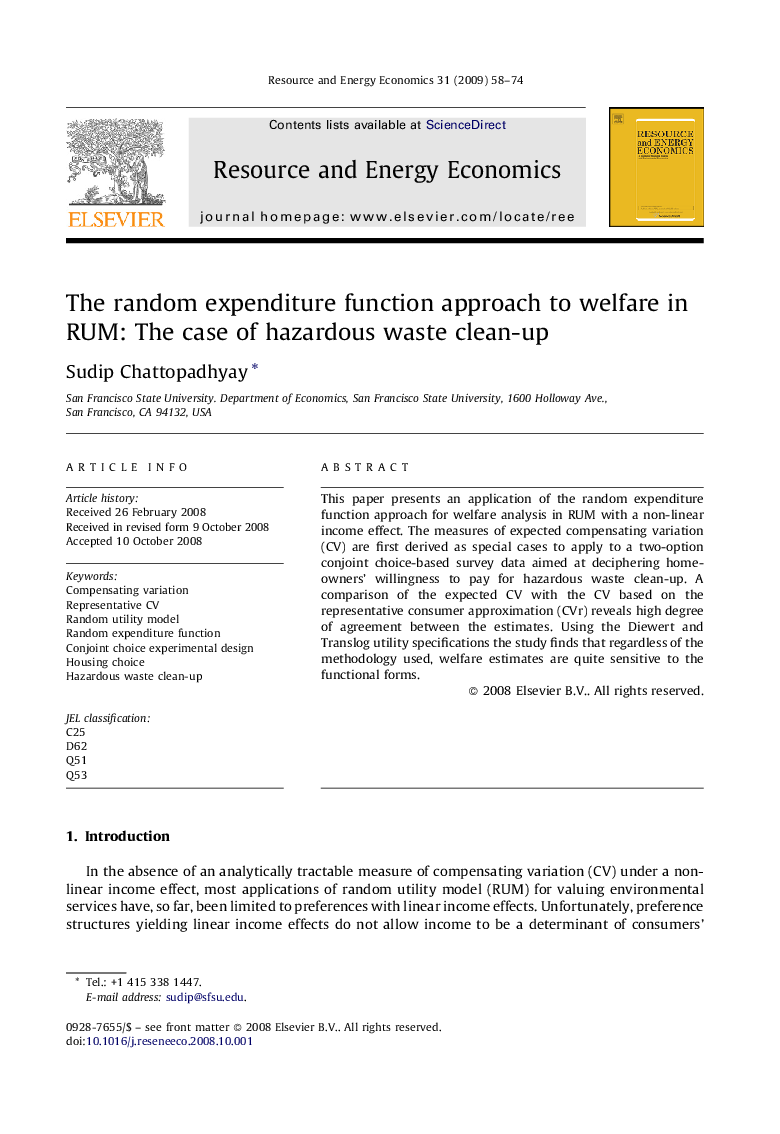| Article ID | Journal | Published Year | Pages | File Type |
|---|---|---|---|---|
| 985492 | Resource and Energy Economics | 2009 | 17 Pages |
Abstract
This paper presents an application of the random expenditure function approach for welfare analysis in RUM with a non-linear income effect. The measures of expected compensating variation (CV) are first derived as special cases to apply to a two-option conjoint choice-based survey data aimed at deciphering homeowners' willingness to pay for hazardous waste clean-up. A comparison of the expected CV with the CV based on the representative consumer approximation (CVr) reveals high degree of agreement between the estimates. Using the Diewert and Translog utility specifications the study finds that regardless of the methodology used, welfare estimates are quite sensitive to the functional forms.
Related Topics
Physical Sciences and Engineering
Energy
Energy (General)
Authors
Sudip Chattopadhyay,
